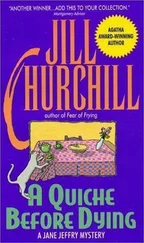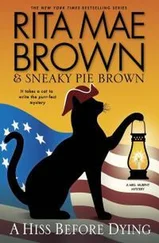Peter Dickinson - Some Deaths Before Dying
Здесь есть возможность читать онлайн «Peter Dickinson - Some Deaths Before Dying» весь текст электронной книги совершенно бесплатно (целиком полную версию без сокращений). В некоторых случаях можно слушать аудио, скачать через торрент в формате fb2 и присутствует краткое содержание. Год выпуска: 1999, ISBN: 1999, Издательство: Mysterious Press, Жанр: Старинная литература, на английском языке. Описание произведения, (предисловие) а так же отзывы посетителей доступны на портале библиотеки ЛибКат.
- Название:Some Deaths Before Dying
- Автор:
- Издательство:Mysterious Press
- Жанр:
- Год:1999
- ISBN:9780446561099
- Рейтинг книги:3 / 5. Голосов: 1
-
Избранное:Добавить в избранное
- Отзывы:
-
Ваша оценка:
- 60
- 1
- 2
- 3
- 4
- 5
Some Deaths Before Dying: краткое содержание, описание и аннотация
Предлагаем к чтению аннотацию, описание, краткое содержание или предисловие (зависит от того, что написал сам автор книги «Some Deaths Before Dying»). Если вы не нашли необходимую информацию о книге — напишите в комментариях, мы постараемся отыскать её.
Some Deaths Before Dying — читать онлайн бесплатно полную книгу (весь текст) целиком
Ниже представлен текст книги, разбитый по страницам. Система сохранения места последней прочитанной страницы, позволяет с удобством читать онлайн бесплатно книгу «Some Deaths Before Dying», без необходимости каждый раз заново искать на чём Вы остановились. Поставьте закладку, и сможете в любой момент перейти на страницу, на которой закончили чтение.
Интервал:
Закладка:
As a result, Rachel now realised she had never looked at them with anything like the attention that she would have given to “serious” photographs, not even while she was so painstakingly compiling the Life . They were there for what they were, not for what they showed. She was certain there was one of Fish only because she could remember the difficulty of taking it in the first place. Yes, there, wolfing a canapé.
“Glass, please.”
“Drinkie first, dearie?…There. Better now? Which one did you want to look at? Oh, this one, I suppose, because it’s your friend again. You tell me when I’ve got it right.”
“Higher…Left…Too far…Stop…Closer…Stop.”
The prints were postcard size, the largest Rachel had been able to make without the images from the coarse little lens dissolving into their individual grains. That now happened under the magnifying glass. She could just make out the finger and thumb of the left hand, a pale something between them piled with a darker mound. Rachel was fairly sure what it must be, though she was not the sort of bride who could remember, sixty years after the event, the exact list of catered snacks handed round at her wedding reception.
“No good…You try…What’s he…eating?…What’s on…other chair?”
“Now, dearie, don’t try and talk too much. We’ve all the time in the world, haven’t we? Let me see…Perhaps if I take it to the window…That’s better…Well, it’s one of those little cocktaily things, isn’t it? What’s that black stuff called? Caviare? It might be that…Isn’t that just a serviette on the chair? Oh, no, there’s something under it—it might be a bit of a plate…And doesn’t he look pleased with himself?”
Somewhere at the base of her neck Rachel felt a curious sensation, not itself a tingle, but a blocked impulse to send such a tingle down her spine and along her limbs, to cause the skin to crawl and the body shiver with pure fulfilment, satisfaction at the equation solved, the image perfect on the print, the chaser backed on a hunch nosing home at ridiculous odds. The caviare.
Time and again in his whining old age Rachel’s father had reverted to the caviare.
“Want you to meet my daughter, Rachel. Married Jocelyn Matson. What a wedding that was! Best party I’ve ever been to, though I say it myself. Champagne and caviare.”
“You oughtn’t to be keeping me in a hole like this, Rachel. You’re my daughter, aren’t you? Remember what I stumped up for your wedding? Do you know what caviare costs?”
By the end he would bring it up four or five times a visit.
It had been a promise since childhood, at that time easily within his means. But his spice business was one of the early victims of the Depression, when it became an absurdity—except that his hard won status as an English gentleman mattered more than anything else, and a gentleman keeps his promises, whatever the cost.
So there had been champagne, as cheap as could be found, and four plates of little round biscuits spread as thinly as the caviare would cover.
“I’ll tell Fish to lay off or he’ll wolf the lot,” Leila had said. “He’d live on the stuff if we could afford it.”
Rachel had no doubt that the order had been given. For twelve years they had been telling each other their private miseries, and Leila knew from many visits the emotional discomforts of Rachel’s home. She would certainly have understood how much it mattered that Rachel’s father shouldn’t be given such leverage to use and reuse.
And yet Fish had taken one of the four plates, carried it, with the two chairs, to a corner of the rose garden well away from the marquee, and hidden it under the napkin. Rachel had spotted him through the rose trellis and photographed him in the act of eating one of the biscuits piled with the scrapings of several others, he unaware of her presence, she of the apparently trivial betrayal. The lens had only three focal settings. The gap in the screening roses was too high for her to be able to hold the camera at waist level and peer down through the viewfinder. She had had to stand sideways on, unable to see him directly, and wait for the moment when the minuscule image looked somehow expressive of him.
Which it did. As with the other image, with Lord Something, his essential nature seemed to speak from the page, a deep satisfaction with himself, independent of anyone else in the world. Dilys had it exactly right. It was himself he was pleased with. The pleasure lay only superficially in the taste and texture of the caviare. (It had, apparently, been of fair quality—Rachel’s father still had connections in the trade.) The deeper pleasure lay in his own wishes prevailing over those of anyone else, no matter who.
Since his disappearance, and his leaving Leila so desperately in the lurch, Rachel had come to accept that that was indeed his true nature. But while he had still been there, coming in and out of their lives, such easy company, so useful in odd little ways, so well liked by the children, so continuingly doted on by Leila, it had seemed to be merely the occasional carelessness and thoughtlessness, by-products of an easygoing nature, that had caused the unpredictable let-downs. Jocelyn, a very perceptive judge of men (less so, in Rachel’s view, of women), had accepted him fully. Before their marriages they had been no more than regimental colleagues, and would probably not have become friends but for Rachel and Leila’s need of each other; even then for a while their friendship couldn’t have been called close.
Small chance of that, with Rachel joining Jocelyn in India, and all three children being born out there, and no plans to return permanently to England until the eldest boy, if any, needed to go to prep school. The war had intervened when Dick was only three.
So in the next three albums the only images of Fish had been captured during the Staddings’ trip to India in the first year after the marriages, and twice during home leaves, when the Matsons had stayed for a week with Leila and Fish, and a return visit had been paid to Forde Place as guests of Jocelyn’s parents. It was there that Rachel had first recorded the bond between Anne and Simon, two three-year-olds, hand in hand, lurking crouched behind a topiary box obelisk, poised to spring out when Fish, already visible on the right of the picture, came strolling towards the ambush, obviously aware of it but happy to play and overplay his role.
Again Rachel willed all her concentration into focus on the image. No, you wouldn’t have guessed. However closely you’d watched him then, you wouldn’t have guessed. For one thing, how could you suspect anyone whom children liked so readily? He was wonderful with them, full of jokes that stretched but didn’t exceed their understanding, and so were especially delightful to them; inventive of amusements for them to learn and then play on their own; patient with their bad moods—able indeed to coax a tot out of a tantrum faster than anyone Rachel had ever known, and without conceding and inch over the cause of the uproar.
He had been just as good with Jocelyn’s parents. They were well mannered with Rachel, but couldn’t help her perceiving that they thought her nothing like good enough for Jocelyn; and not unreasonably they detested her father. Unable to express their feelings openly, they had displaced them into highly exacting rules about the behaviour of the grandchildren, incomprehensible to toddlers used to the tolerance of a doting ayah . It had been a considerable concession that Leila and Fish could bring two further brats for their first visit. By the end of it not only had the rules been greatly relaxed, but Rachel’s own status and worth seemed to have improved, and this had been Fish’s achievement as much as her own.
Читать дальшеИнтервал:
Закладка:
Похожие книги на «Some Deaths Before Dying»
Представляем Вашему вниманию похожие книги на «Some Deaths Before Dying» списком для выбора. Мы отобрали схожую по названию и смыслу литературу в надежде предоставить читателям больше вариантов отыскать новые, интересные, ещё непрочитанные произведения.
Обсуждение, отзывы о книге «Some Deaths Before Dying» и просто собственные мнения читателей. Оставьте ваши комментарии, напишите, что Вы думаете о произведении, его смысле или главных героях. Укажите что конкретно понравилось, а что нет, и почему Вы так считаете.









